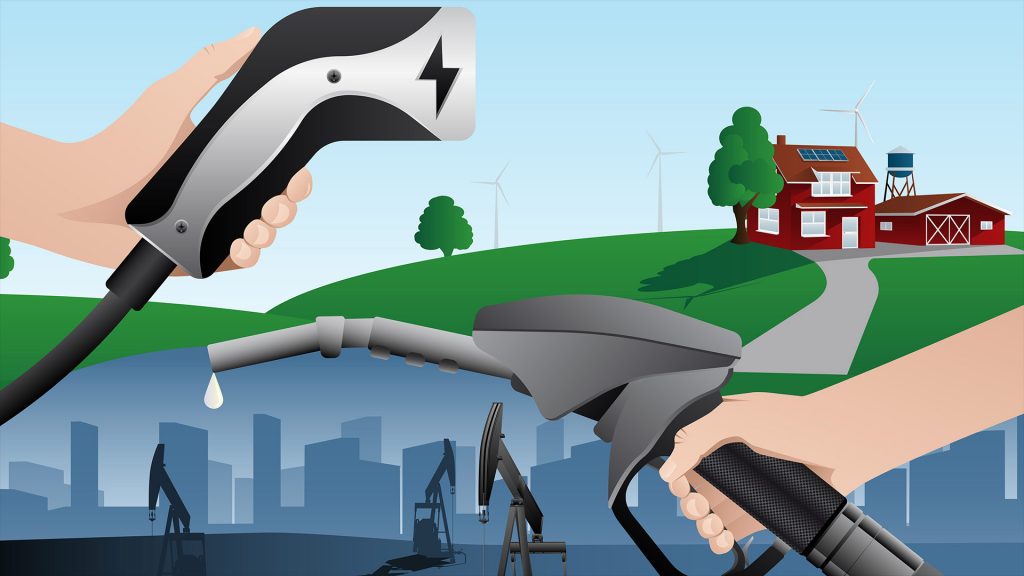There’s no avoiding the fact that EVs are still considerably more expensive to buy than petrol/diesel cars and that's largely down to the cost of the batteries. Doing a side-by-side comparison for cars that use the same platform and chassis, the battery electric version will normally be £5-10,000 more expensive than the petrol or diesel model. In a world where diesel can cost up to £1.80 a litre, the on-going running cost for an EV will quickly start to balance out the increased purchase price. With the recent sharp rise in electricity prices: Is it really cheaper to drive an EV?
The simple answer is “yes”, per mile. But the more complex answer is by how much, and that depends on where you can charge. Let’s compare a similar petrol car with an EV. We’re going to use a Volkswagen Golf 8 1.0 TSI in Life trim as our petrol example, and a Volkswagen ID.3 Pro Performance in Life trim as our EV. At the time of writing, the Golf 8 started at £25,340, and the ID.3 was over £10,000 more at £35,835.
If you can charge at home most of the time, then an EV can easily halve your cost per mile, and that saving will be a lot bigger with a low-price overnight tariff.
The Golf 8 is rated for 52.3 mpg, and the ID.3 is rated for 4 miles per kWh. Of course, in the real world both are unlikely to achieve these figures, but they are both derived using the WLTP testing procedure, so it’s not an unfair comparison. According to the RAC’s Fuel Watch (at the time of writing) a litre of unleaded petrol was 165.62p on average in the UK. There are 4.54609 litres in a UK gallon, so that’s 752.92p per gallon. That means the Golf 8 is costing 14.4p per mile in petrol on average.
The charging costs for the ID.3 vary greatly, depending on where you charge. If you’re lucky enough to have home charging and a cheap overnight tariff, you could be paying just 7.5p per kWh, which equates to 1.88p per mile. On the other hand, a typical electricity rate is 29p per kWh, which is 7.25p per mile. Ubitricity lamppost chargers are currently 32p per kWh, which is 8p per mile. Osprey DC chargers cost 49p per kWh, which is 12.25p per kWh. At the top end of the EV price-per-kW scale sit the IONITY chargers at 72p per kWh, which is 18p per kWh.
In other words, if you always use the IONITY network at this price it will be more expensive to run the ID.3 per mile than the Golf 8. But to be fair, if you always refuelled at motorway service stations, you will be paying a lot more for petrol too – at least 10p more per litre, over 45p more per gallon. Every other charger choice is cheaper, and EV owners can clearly save huge amounts by avoiding expensive public chargers and using home or lamppost options as much as possible. If you can do that, EVs can halve the cost per mile, and a lot more with a low-price overnight tariff. According to the RAC, British drivers average close to 7,000 miles on the road per year. If you’re paying around 7p less for each mile, then that's a saving of nearly £500 a year. Plus, the further you drive, the more you'll save.
However, another factor that could make an EV considerably cheaper to run is if you regularly drive within London’s Congestion Charge Zone or one of the Ultra-Low Emission Zones (ULEZ) now arriving in UK cities. Until 2025, battery EVs don’t pay the Congestion Charge, which is a £15 saving every day. London’s ULEZ costs £12.50 a day, and on October 25th, 2021, that extended to within the North and South Circular roads, a much larger area than the Congestion Charge. So that would make £27.50 saved for driving in central London per day. Birmingham and Leeds are looking to implement clean air zones costing up to £10 a day, and Oxford is considering banning everything except zero-emissions vehicles from the city centre.
There are other factors in the total cost of owning an EV compared to petrol or diesel. The high resale value and low maintenance needs of EVs means they are often available with cheaper monthly lease prices than the purchase price would imply, and servicing costs can be much lower too. But these are questions we will reply to in future EV Answers. Even without these considerations, on a day-to-day fuel basis, EVs are cheaper to drive than petrol.
